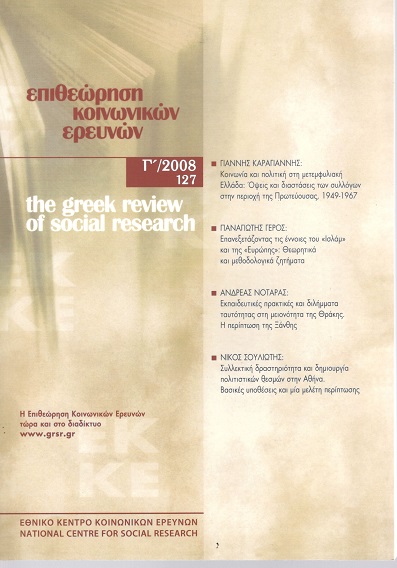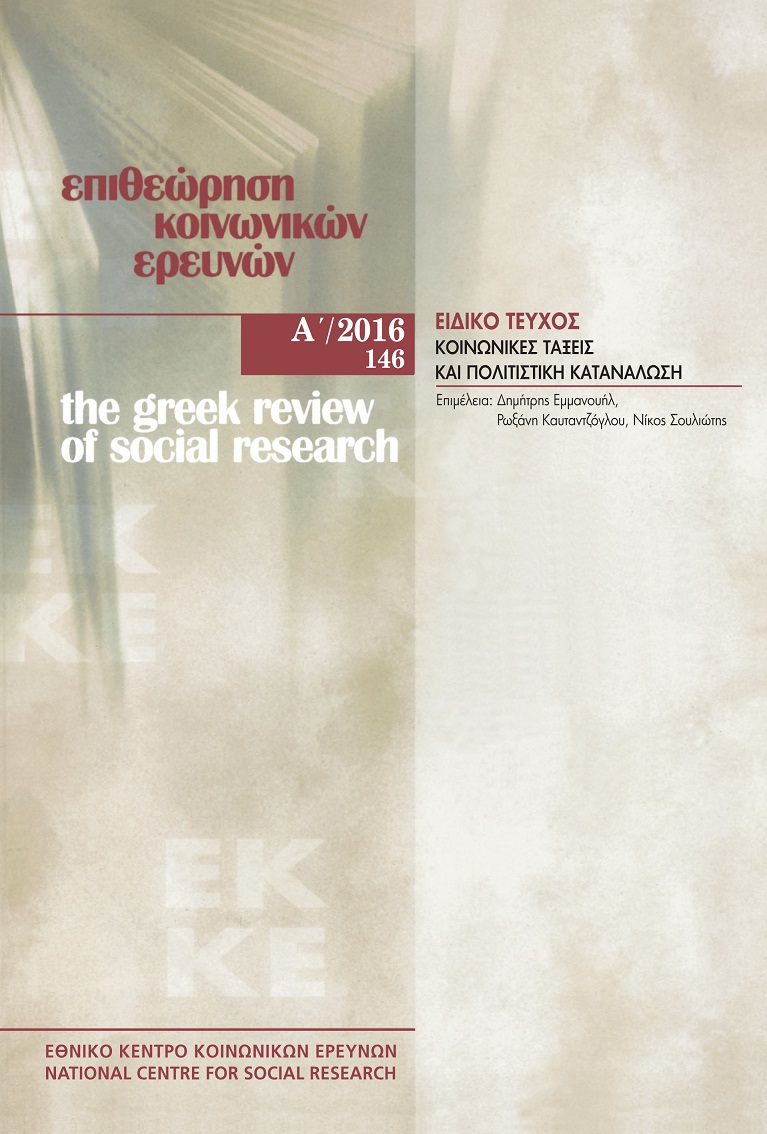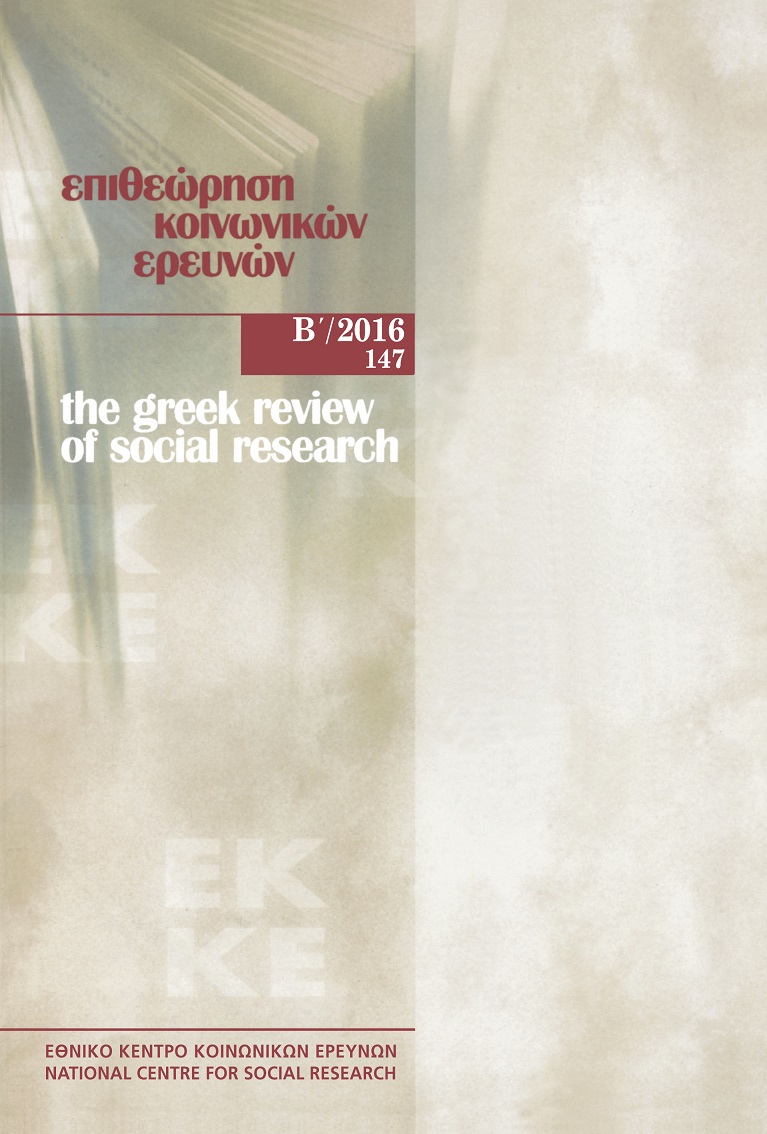Collecting activity and creation of cultural institutions in Athens: basic hypotheses and a case study
Abstract
This paper aims at restituting the social and economic conditions of creation of non-profit foundations in Athens by members of the business elite. The hypothesis of the article is that the creation of non-profit foundations is a practice of cultural distinction, which offers symbolic profit as it generates a public image of economic disinterest vis-à-vis culture. In the first part of the paper, we investigate the general conditions of creation of the foundations, indicating the role of the enlargement of the upper classes in the social structure of Athens, and the restructuring of the Greek business world. In the second part, we present a case study, that of the DESTE foundation, which verifies our general hypothesis. The
examination of the activity of the foundation and its president illustrate, also, the importance of the international art market as well as the way that networks of art people emerge around non-profit foundations.
Article Details
- How to Cite
-
Σουλιώτης Ν. (2016). Collecting activity and creation of cultural institutions in Athens: basic hypotheses and a case study. The Greek Review of Social Research, 127, 103–140. https://doi.org/10.12681/grsr.9879
- Issue
- 2008: 127 Γ'
- Section
- Articles

This work is licensed under a Creative Commons Attribution-NonCommercial 4.0 International License.
Authors who publish with this journal agree to the following terms:
- Authors retain copyright and grant the journal right of first publication with the work simultaneously licensed under a Creative Commons Attribution Non-Commercial License that allows others to share the work with an acknowledgement of the work's authorship and initial publication in this journal.
- Authors are able to enter into separate, additional contractual arrangements for the non-exclusive distribution of the journal's published version of the work (e.g. post it to an institutional repository or publish it in a book), with an acknowledgement of its initial publication in this journal.
- Authors are permitted and encouraged to post their work online (preferably in institutional repositories or on their website) prior to and during the submission process, as it can lead to productive exchanges, as well as earlier and greater citation of published work (See The Effect of Open Access).





